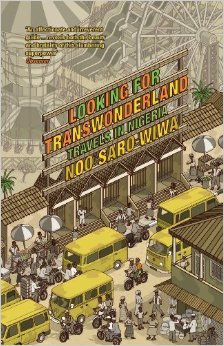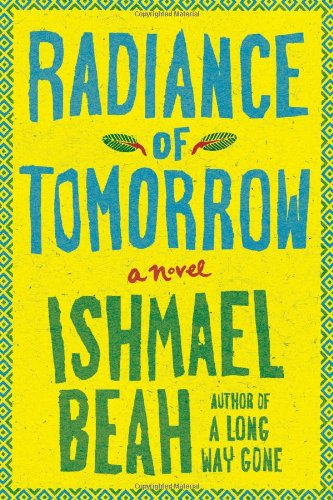African History Month Book Recommendations – Gloria Reinbergs
Gloria Reinbergs Recommends:
(All available at Toronto Public Library and amazon.ca)
1. Noo Saro-Wiwa. ‘Looking for transwonderland: travels in Nigeria’. 2012

Noo Saro-Wiwa was brought up in England, but every summer she was dragged back to visit her father in Nigeria — a country she viewed as an annoying parallel universe where she had to relinquish all her creature comforts and sense of individuality. After her father, activist Ken Saro-Wiwa, was killed there, she didn’t return for several years. Recently, she decided to come to terms with the country her father given his life for.
2. Kwame Dawes. ‘Duppy conqueror: new and selected poems’. Copper Canyon.

Kwame Dawes: Kwame Dawes was born in Ghana in 1962 and moved with his family to Jamaica at the age of ten. He is the author of fifteen collections of poetry, two novels, four anthologies, numerous essays, and has seen fifteen of his plays produced. In 2009 he was awarded an Emmy for his interactive website, LiveHopeLove.com. Since 2011 he has taught at the University of Nebraska as a Chancellor’s Professor of English as well as the Editor of Prairie Schooner. He is a Cave Canem faculty member and teaches in the MFA program at Pacific University. He lives in Lincoln, Nebraska.
3. Ishmael Beah. ‘Radiance of tomorrow.’ Penguin Canada, 2014

A haunting, beautiful first novel by the bestselling author of A Long Way Gone.
“Every story begins and ends with a woman, a mother, a grandmother, a girl, a child. Every story is a birth…”
So begins Radiance of Tomorrow, Ishmael Beah’s first novel, one dogged by memories of horror but glimmering with an improbable hope. When Beah’s memoir, A Long Way Gone, was published in 2007, it soared to the top of bestseller lists, becoming an instant classic: a harrowing account of Sierra Leone’s civil war and the fate of child soldiers that “everyone in the world should read” (Carolyn See, The Washington Post). Now Beah, whom Dave Eggers has called “arguably the most read African writer in contemporary literature,” has returned with an affecting, tender parable about postwar life in those regions of Africa still reeling from conflict.
At the center of Radiance of Tomorrow are Benjamin and Bockarie, two longtime friends who return to their hometown, Imperi, after a devestating civil war. The village is in ruins, the ground covered in bones and drenched in deep despair. The war may be over, but the denizens of Imperi are not spared the dangers that hover over them, menacing as vengeful ghosts. As more villagers begin to come back, Benjamin and Bockarie try to forge a new community by taking up their former posts as teachers, but they’re beset by obstacles: a scarcity of food; a rash of murders, thievery, rape, and retaliation; and the depredations of a foreign mining company intent on sullying the town’s water supply and blocking its paths with electric wires. As Benjamin and Bockarie search for a way to restore order, they’re forced to reckon with the uncertainty of their past and future alike.
With the gentle lyricism of a dream and the moral clarity of a fable, Radiance of Tomorrow is a powerful novel about preserving what means the most to us, even in uncertain times. If A Long Way Gone taught us to mourn the crimes of yesterday, Radiance of Tomorrow introduces us to a people who must survive their guilt and accept tomorrow, with all its promise—and radiance.*
4. Chimamanda Ngozi Adichie. ‘Americana.’ Knopf, 2014

A searing new novel, at once sweeping and intimate, by the award-winning author of Half of a Yellow Sun: a story of love and race centred around a man and woman from Nigeria who seemed destined to be together–until the choices they are forced to make tear them apart. Ifemelu–beautiful, self-assured–left Nigeria 15 years ago, and now studies in Princeton as a Graduate Fellow. Obinze–handsome and kind-hearted–was Ifemelu’s teenage love; he’d hoped to join her in America, but post 9/11 America wouldn’t let him in.
Years later, when they reunite in Nigeria, neither is the same person who left home. Obinze is the kind of successful “Big Man” he’d scorned in his youth, and Ifemelu has become an “Americanah”–a different version of her former self, one with a new accent and attitude. As they revisit their shared passion–for their homeland and for each other–they must face the largest challenges of their lives.*
5. NoViolet Bulawayo. ‘We Need New Names’ Reagan Arthur books, 2013

Darling is only ten years old, and yet she must navigate a fragile and violent world. In Zimbabwe, Darling and her friends steal guavas, try to get the baby out of young Chipo’s belly, and grasp at memories of Before. Before their homes were destroyed by paramilitary policemen, before the school closed, before the fathers left for dangerous jobs abroad.
But Darling has a chance to escape: she has an aunt in America. She travels to this new land in search of America’s famous abundance only to find that her options as an immigrant are perilously few. NoViolet Bulawayo’s debut calls to mind the great storytellers of displacement and arrival who have come before her-from Junot Diaz to Zadie Smith to J.M. Coetzee-while she tells a vivid, raw story all her own. *
Chibundu Onuzo. ‘The spider king’s daughter. Faber & Faber, 2012
Shortlisted for the Dylan Thomas Prize and the Commonwealth Book Prize Longlisted for the Desmond Elliot Prize The Spider King’s Daughter is a modern-day Romeo and Juliet set against the backdrop of a changing Lagos, a city torn between tradition and modernity, corruption and truth, love and family loyalty. Seventeen-year-old Abike Johnson is the favourite child of her wealthy father. She lives in a She lives in a sprawling mansion in Lagos, protected by armed guards and ferried everywhere in a huge black jeep. But being her father’s favourite comes with uncomfortable duties, and she is often lonely behind the high walls of her house. A world away from Abike’s mansion, in the city’s slums, lives a seventeen-year-old hawker struggling to make sense of the world. His family lost everything after his father’s death and now he runs after cars on the roadside selling ice cream to support his mother and sister. When Abike buys ice cream from the hawker one day, they strike up an unlikely and tentative romance, defying the prejudices of Nigerian society. But as they grow closer, revelations from the past threaten their relationship and both Abike and the hawker must decide where their loyalties lie.*
6. Chinelo Okparanta. ‘Happiness, like water. Stories.’ Houghton Mifflin, 2013
Here are Nigerian women at home and transplanted to the United States, building lives out of longing and hope, faith and doubt, the struggle to stay and the mandate to leave, the burden and strength of love. Here are characters faced with dangerous decisions, children slick with oil from the river, a woman in love with another despite the penalties. Here is a world marked by electricity outages, lush landscapes, folktales, buses that break down and never start up again. Here is a portrait of Nigerians that is surprising, shocking, heartrending, loving, and across social strata, dealing in every kind of change. Here are stories filled with language to make your eyes pause and your throat catch. Happiness, Like Water introduces a true talent, a young writer with a beautiful heart and a capacious imagination.*
*Notes from amazon.ca


